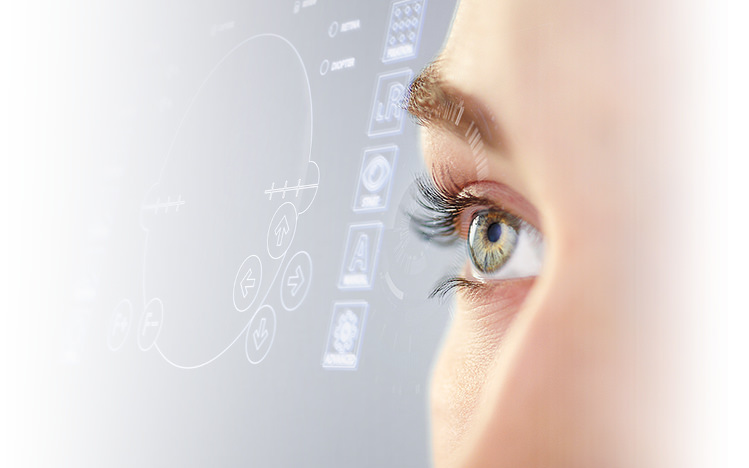All Categories
Featured
When it involves sunlight safety, the majority of people concentrate on securing their skin from harmful UV rays. Nonetheless, the impacts of UV radiation on your eyes are equally crucial however often ignored. Prolonged direct exposure to ultraviolet (UV) rays can cause different eye problems, some of which may result in permanent damage or vision loss. Whether you're outdoors on a bright coastline or taking a walk on an overcast day, comprehending just how UV rays affect your eyes and learning how to secure them is critical for keeping healthy vision.
What Are UV Rays and Just How Do They Effect the Eyes? UV rays are a form of unnoticeable radiation released by the sun. There are 3 kinds of UV rays:
UVA Rays: These penetrate deeply into the skin and eyes, adding to long-lasting damages. UVB Rays: These are extra intense and can create surface-level damage, such as sunburn or corneal damage. UVC Rays: These are the most hazardous but are absorbed by the Earth's ambience and rarely posture a direct risk. Both UVA and UVB rays can harm numerous parts of the eye, consisting of the cornea, lens, and retina.
Short-Term Results of UV Direct Exposure. Even a short duration of extreme UV exposure can hurt your eyes. An usual condition resulting from this is photokeratitis, commonly referred to as "sunburn of the eye." Signs consist of:
Unpleasant or red eyes. Level of sensitivity to light. Extreme tearing. Short-term fuzzy vision. Photokeratitis is normally momentary but functions as a pointer of the prompt risks of UV radiation.
Long-Term Impacts of UV Exposure. Collective UV exposure gradually can lead to numerous serious eye conditions, consisting of:

Cataracts: UV rays accelerate the advancement of cataracts, a problem where the lens of the eye comes to be over cast, leading to vision impairment. Cataracts are a leading root cause of blindness worldwide.
Macular Deterioration: The macula, a part of the retina accountable for main vision, can be harmed by prolonged UV direct exposure, boosting the risk of age-related macular degeneration (AMD)
Pterygium: Often called "surfer's eye," this condition includes a growth of tissue on the white component of the eye, which can extend over the cornea and hinder vision.
Pinguecula: UV direct exposure can trigger yellowish areas to form on the conjunctiva, resulting in inflammation and pain.
Skin Cancer Around the Eyes: The fragile skin bordering the eyes is very susceptible to UV radiation, boosting the danger of basal and squamous cell cancer.
Shielding Your Eyes from UV Damages. The excellent information is that protecting your eyes from UV radiation is straightforward and effective. Here are some essential ideas:
Wear UV-Blocking Sunglasses. Choose sunglasses that obstruct 100% of UVA and UVB rays. Look for tags showing "UV 400" defense. Wrap-around designs supply additional protection, protecting against UV rays from going into from the sides.
Make Use Of a Wide-Brimmed Hat. A hat with a large border can obstruct almost 50% of UV rays, providing additional defense for your eyes and the fragile skin around them.
Prevent Height Sun Hours. UV rays are strongest between 10 a.m. and 4 p.m. Minimize your outside direct exposure during these hours, or guarantee you're sufficiently shielded if you require to be outside.
Protect Your Eyes Year-Round. UV rays exist year-round, also on over cast or snowy days. Snow, sand, and water can reflect UV rays, escalating their effects. Make sunglasses a component of your daily routine, no matter of the period.
Think About UV-Blocking Contact Lenses. Several get in touch with lenses now offer UV security, which can be an additional protect when coupled with sunglasses.
Motivate Eye Security for Children. Children's eyes are extra susceptible to UV damages since their lenses are more clear, permitting even more UV light to get to the retina. Guarantee they wear sunglasses and hats when playing outdoors.
Schedule Normal Eye Examinations. Normal visits to an eye treatment expert are necessary for checking your eye health and wellness. An eye doctor can detect very early indicators of UV-related damages and suggest remedies, such as prescription sunglasses or UV-blocking glasses customized to your requirements.
Verdict. UV rays may be invisible, however their effect on your eye health and wellness is really actual. Remember, your eyes are one of your most beneficial properties-- take the needed actions to protect them from harmful UV rays today.
Latest Posts
Specialist Industrial Roofing Solutions in North Platte, Nebraska
Explore Budget-Friendly Auto Repairs with Montclare’s Monthly Service Specials
Find the Greatest Auto Repair Discounts in Montclare, Chicago
More
Latest Posts
Specialist Industrial Roofing Solutions in North Platte, Nebraska
Explore Budget-Friendly Auto Repairs with Montclare’s Monthly Service Specials
Find the Greatest Auto Repair Discounts in Montclare, Chicago